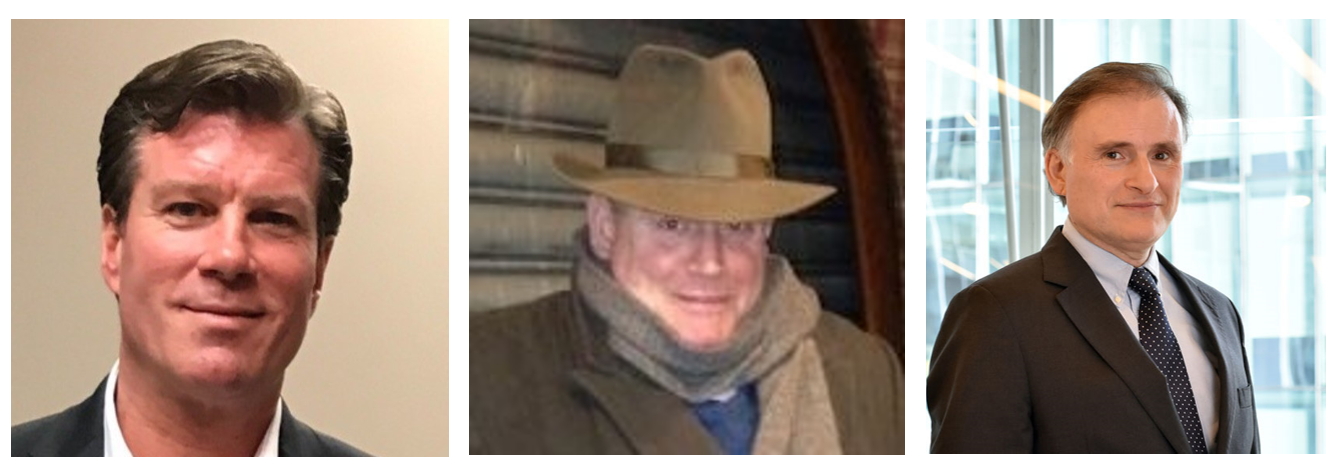
Adriana Sanford, Dual LL.M., J.D., Founder of Data Privacy Help, LLC, Senior Research Fellow at Claremont Graduate University, and remote Of Counsel at Puga Ortiz Abogados in Santiago, Chile.

Adriana Sanford, Dual LL.M., J.D., Founder of Data Privacy Help, LLC, Senior Research Fellow at Claremont Graduate University, and remote Of Counsel at Puga Ortiz Abogados in Santiago, Chile.
Securing Tomorrow's Defense and Sustainability: High Stakes in Global Resource Management
LOS ANGELES, CALIFORNIA, UNITED STATES, January 4, 2024 /EINPresswire.com/ -- In this high-tech era, where geopolitics and economic strategy converge, Rare Earth Minerals (REMs) and Lithium are central to discussions on economic growth, national security, and sustainable development. The global shift towards addressing climate change and sustainable technology heightens the focus on eco-friendly element/mineral extraction and processing. Adriana Sanford, Founder of Data Privacy Law, LLC, stresses the importance of industry experts driving engagement and investment to maintain steady demand and market stability aligning with national security objectives. Strengthening collaboration between the government and private sectors is crucial for encouraging investment and creating markets for outputs from extraction sites. Establishing partnerships with entities like the Department of Defense (DoD), involving commitments to procure from accredited sites, represents an effective strategy. This method is conducive to spurring industry growth and simultaneously aligns with the shared objectives of both sectors.
REMs, also referred to as Rare Earth Elements (REEs), encompass a group of 17 elements, including scandium (Sc), yttrium (Y), and the 15 lanthanides. These elements play a fundamental role in a diverse array of high-technology applications, spanning the manufacturing of products such as electric vehicles, wind turbines, smartphones, military equipment, radar systems, and consumer electronics. For instance, neodymium and dysprosium are crucial elements in the production of powerful permanent magnets. During the extraction of REMs, substantial environmental challenges and health hazards are inherent, primarily stemming from extraction processes that can be highly caustic and carcinogenic in nature. Sanford stresses a multifaceted approach, including miner safety, site security, and maritime protection for sustainable extraction, transportation, and shipping.
Jonathan Meyer, Co-Chair of the National Security Committee at the American Bar Association's International Law Section and Vice Chair of the Committee on Export Controls and Economic Sanctions stresses the critical importance of adhering to miner extraction protection standards. He highlights the practices of countries like Australia and New Zealand, where Western-style miner protection measures may be more robust compared to other extraction areas. Additionally, Meyer draws attention to the robust security measures that may be implemented by NATO and NATO-plus countries for both the protection of sites and the transportation of REMs to safeguard against potential disruptions in supply chains.
Meyer expresses specific concerns about the U.S. defense industry's reliance on these elements and the need to diversify the supply of REMs, considering China's dominant position as the world's largest producer and refiner of REMs. To mitigate these risks effectively, he underscores the need to establish partnerships with other REM-reserve nations, diversify supply chains, and promote domestic production and significant infrastructure investment for self-sufficiency. A significant emphasis must also be placed on improving electronic waste recycling, exploring alternative materials, and conducting extensive research into substitutes. These strategies not only align with environmental sustainability goals but also reduce geopolitical vulnerabilities and ensure a more stable supply chain for these critical elements.
The transition towards sustainable and responsible extraction extends to a crucial mineral in the technological landscape – Lithium. According to the U.S. Geological Survey, the world's lithium resources amount to 98 million metric tons, with the largest share, amounting to 53%, located in the lithium triangle of Bolivia, Chile, and Argentina. Chile is the world's second largest producer of lithium. The country's innovative extraction methods, particularly from brine pools, have set a benchmark in environmentally responsible lithium production.
Codelco, the state-owned Chilean mining corporation, and SQM, a private mining entity, signed a preliminary Memorandum of Understanding on December 27, 2023. This agreement outlines a joint venture to explore, develop, and commercialize lithium and other minerals in the Salar de Atacama from January 1, 2025, to December 31, 2060. The partnership entails forming a company with Codelco holding a majority stake (50% plus one share), in alignment with President Gabriel Boric's national lithium strategy. This strategic alliance, while contentious, has positively influenced SQM's market shares and sets a precedent for Chile's future lithium initiatives through public-private collaborations. Cristián Edwards, Partner at Puga Ortiz Abogados, emphasizes the significant impact of the Codelco-SQM agreement for Chile, highlighting both substantial opportunities and complex economic and geopolitical challenges. He advocates for innovative and robust approaches to address these issues.
Countries endowed with substantial REM and Lithium reserves will continue to gain strategic prominence in 2024, potentially reshaping alliances and geopolitical dynamics.
* * * *
DATA PRIVACY HELP, LLC was founded by Chilean American Adriana Sanford.
Sanford focuses on global security, crisis response, regulatory compliance, and the legal ramifications of non-compliance. Her career encompasses a range of in-house and legal firm roles, including serving as regional counsel for a Fortune 50 company. She has extensive knowledge of sector-specific standards and is an expert in international privacy laws. Sanford, in partnership with Cristian Edwards of Puga Ortiz Abogados and others, co-authored books on global risks and ethics, adopted by the Institute of Supply Management for their centennial celebration. She is proficient in several languages, being fluent in English, Spanish, Portuguese, and French, and competent in German and Italian. Sanford holds a dual law degree (dual LL.M.) in International Comparative Law and Taxation from Georgetown University, along with a J.D. from Notre Dame Law School.
SPONSORS & PROUD SUPPORTERS
PUGA ORTIZ ABOGADOS
Established in 1925, Puga Ortiz is a top-tier, highly specialized law firm, widely regarded as one of the most prominent legal firms in Chile.
CLAREMONT GRADUATE UNIVERSITY (CGU)
Claremont Graduate University, founded in 1925, is a private, all-graduate research university and part of the Claremont Colleges consortium. Its Center for Information Systems & Technology (CISAT) trains professionals and educators for leadership in Information Systems & Technology.
TELECOM4GOOD
Founded in 2015 by Robert Anderson, Telecom4Good provides affordable technology, notably internet access, to nonprofits and NGOs globally.
Maria Adriana Sanford (Koeck)
Data Privacy Help, LLC
adriana@dataprivacyhelp.com
Visit us on social media:
Facebook
LinkedIn
Other




